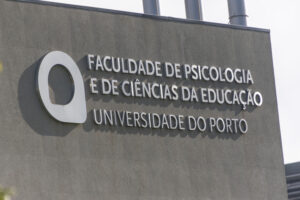The university
Founded in 1911, the University of Porto is a leading teaching and scientific research institution in Portugal, currently ranked among the top 150 European universities in some of the most important international rankings of Higher Education.
Combining quality teaching, focused on individual vocations and market needs, with the status of Portugal’s largest scientific “cradle”, the University of Porto is an institution committed to translating the talent and innovation that populate its 14 faculties, a business school, and over 50 research centers into added value for society. It is here that the richest academic community in Portugal moves, the result of the meeting of the best students in the country with a highly qualified teaching and scientific staff and a growing number of international students, teachers, and researchers. All this in a set of university centers strongly integrated in the city and equipped with infrastructures that ensure the best academic, scientific, but also social, and cultural experience.
The coordinating institute
 The Faculty of Psychology and Education Sciences of the University of Porto (FPCEUP) was created in 1976/77 at the University of Porto and is the school where teaching and research in the fields of Psychology & Education Sciences is carried out. Nowadays nearly 1500 students attend FPCE’s courses (undergraduate, master & doctoral) and over 1200 participants per year come to FPCEUP for their highly reputed continuous education and professional training opportunities. FPCEUP has a significant involvement in education and training in areas such as education, justice, health, central and local public administration, socio-cultural work, corporations, among others. FPCEUP is also very actively engaged in R&D activities mainly through research centres funded by the Portuguese Foundation for Science and Technology that have been very positively evaluated by international committees. Internationalization plays also an important goal in FPCEUP, not only by the increasing number of projects and protocols established with national and international entities but also by an increasing exchange flow of students, professors, and researchers. For example, the doctoral program of education is an international program in cooperation with the State University of Rio de Janeiro. With almost 30 years of activity, FPCEUP is committed to high level quality education and research and the promotion of an institutional culture that is concerned with well-being and social justice.
The Faculty of Psychology and Education Sciences of the University of Porto (FPCEUP) was created in 1976/77 at the University of Porto and is the school where teaching and research in the fields of Psychology & Education Sciences is carried out. Nowadays nearly 1500 students attend FPCE’s courses (undergraduate, master & doctoral) and over 1200 participants per year come to FPCEUP for their highly reputed continuous education and professional training opportunities. FPCEUP has a significant involvement in education and training in areas such as education, justice, health, central and local public administration, socio-cultural work, corporations, among others. FPCEUP is also very actively engaged in R&D activities mainly through research centres funded by the Portuguese Foundation for Science and Technology that have been very positively evaluated by international committees. Internationalization plays also an important goal in FPCEUP, not only by the increasing number of projects and protocols established with national and international entities but also by an increasing exchange flow of students, professors, and researchers. For example, the doctoral program of education is an international program in cooperation with the State University of Rio de Janeiro. With almost 30 years of activity, FPCEUP is committed to high level quality education and research and the promotion of an institutional culture that is concerned with well-being and social justice.

